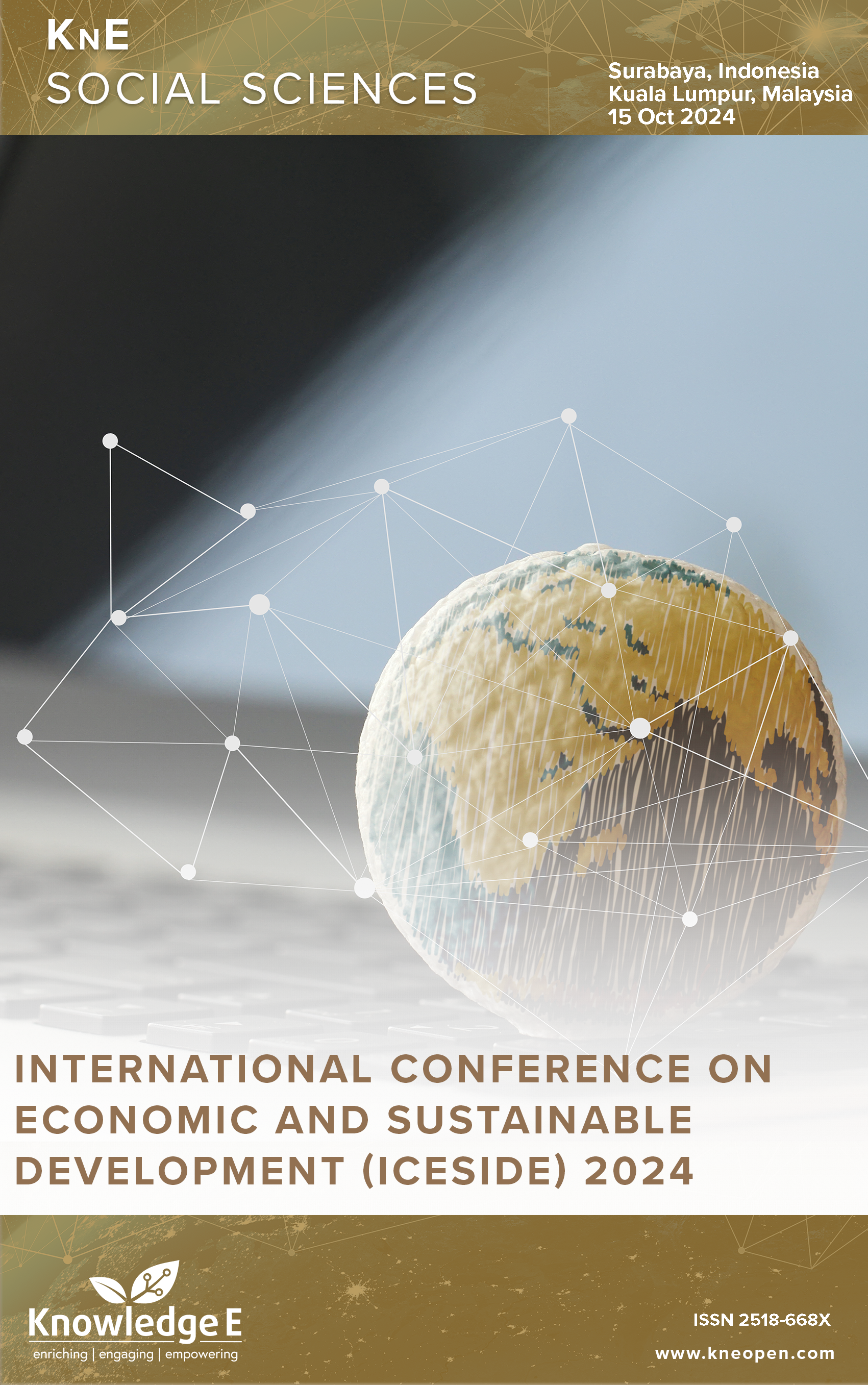Empowering Halal SMEs: Asset-Based Community Development as a Strategy for Development of Halal Ecosystem
DOI:
https://doi.org/10.18502/kss.v10i5.18097Keywords:
asset-based community development, SMEs, halal ecosystem, local resourcesAbstract
The research aims to identify and address harnessing and leveraging existing assets within a community to foster a robust halal ecosystem. This paper explores a case study of halal SMEs that uses a community development framework called asset based community dDevelopment (ABCD) that emphasizes the identification and enhancement of the inherent strengths of communities to promote resilience and adaptability in challenging circumstances. Additionally, surveys and interviews with stakeholders, including SME owners and policymakers, are conducted to provide empirical insights into empowering halal SMEs. Data were collected using an asset-based community development approach including interviews, focus group discussions (FGD), and asset mapping. The paper argues that by recognizing and utilizing the tangible and intangible assets of Halal SMEs, such as cultural knowledge, community networks, and entrepreneurial spirit, these businesses can thrive and contribute significantly to the broader Halal market. Furthermore, this study identifies several empowerment strategies that can be implemented, including capacity building, market access, financial support, and networking opportunities. Identifying assets in the community can be the best solution for SMEs development by changing their paradigm, looking at their potential capacity, and not only focusing on problems. The implementation of an asset-based model could be a community engagement model for developing halal ecosystems.
References
World Population Review [Internet]. https://worldpopulationreview.com/countries/indonesia-population
Islam T, Chandrasekaran U. Halal Marketing: growing the Pie. International Journal of Management Research and Reviews [Internet]. 2012 Dec;3(12): Available from: https://www.researchgate.net/publication/274067823
Fischer J. Islam, Standards, and Technoscience in Global Halal Zone. NewYork: Routledge; 2015. https://doi.org/10.4324/9781315667065. DOI: https://doi.org/10.4324/9781315667065
Nusran M. Gunawan, Razak M, Numba S, Wekke IS. Halal Awareness on the Socialization of Halal Certification. In: IOP Conference Series: Earth and Environ- mental Science. Institute of Physics Publishing; 2018. https://doi.org/10.1088/1755-1315/175/1/012217. DOI: https://doi.org/10.1088/1755-1315/175/1/012217
Creswell JW. Five Qualitative Approaches to Inquiry. In: Qualitative Inquiry and Research Design. 2006. p. 53–84.
Mcknight J. Asset-Based Community Development: The Essentials. 2017.
Scott K, Beckham SW, Gross M, Pariyo G, Rao KD, Cometto G, et al. What do we know about community-based health worker programs? A systematic review of existing reviews on community health workers. Volume 16. Human Resources for Health. BioMed Central Ltd.; 2018. https://doi.org/10.1186/s12960-018-0304-x. DOI: https://doi.org/10.1186/s12960-018-0304-x
Kretzmann JP, Mcknight JL. Building Communities From The Inside Out: a Path Toward Finding and Mobilizing a Community’s Assets. Chicago: ACTA Pubblications; 1993.
Mathie A, Cunningham G. Who is driving development? Reflections on the transformative potential of asset-based community development. Can J Dev Stud. 2005;26(1):175–86. DOI: https://doi.org/10.1080/02255189.2005.9669031
Fisher K, Geenen J, Jurcevic M, Mcclintock K, Davis G. Applying asset-based community development as a strategy for CSR: a Canadian perspective on a win-win for stakeholders and SMEs. https://doi.org/10.1111/j.1467-8608.2009.01549.x. DOI: https://doi.org/10.1111/j.1467-8608.2009.01549.x
Eloff I, Ebersohn L. The implications of an asset-based approach to early intervention. Perspect Educ. 2001;19(3).
Forrester G, Kurth J, Vincent P, Oliver M. Schools as community assets: an exploration of the merits of an Asset-Based Community Development (ABCD) approach. Educ Rev. 2020 Jul;72(4):443–58. DOI: https://doi.org/10.1080/00131911.2018.1529655
Pan RJ, Littlefield D, Valladolid SG, Tapping PJ, West DC. Building healthier com- munities for children and families: applying asset-based community development to community pediatrics. Pediatrics. 2005 Apr;115(4 Suppl):1185–7. DOI: https://doi.org/10.1542/peds.2004-2825Q
Misener L, Schulenkorf N. Rethinking the social value of sport events through an asset-based community development (ABCD) perspective. J Sport Manage. 2016;30(3):329–40. DOI: https://doi.org/10.1123/jsm.2015-0203
Mathie A, Cunningham G. From clients to citizens: asset-based Community Development as a strategy for community-driven development. Dev Pract. 2003 Nov;13(5):474–86. DOI: https://doi.org/10.1080/0961452032000125857

